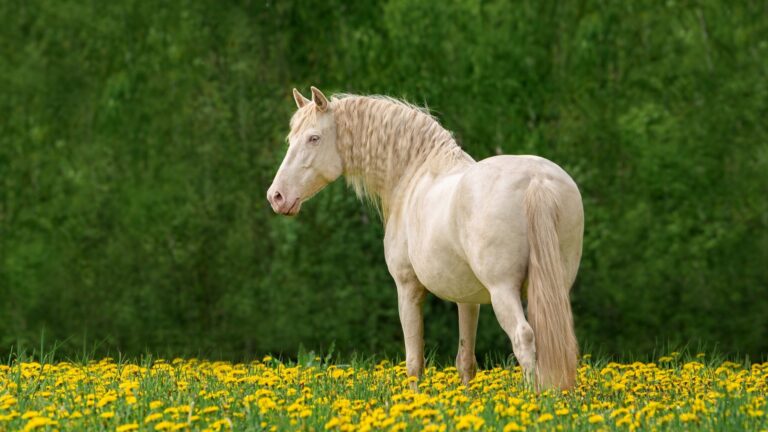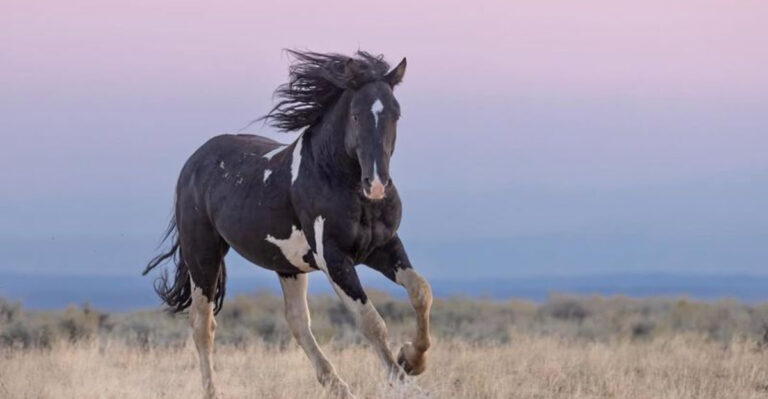How Moving Slowly Helps Tortoises Live Incredibly Long Lives
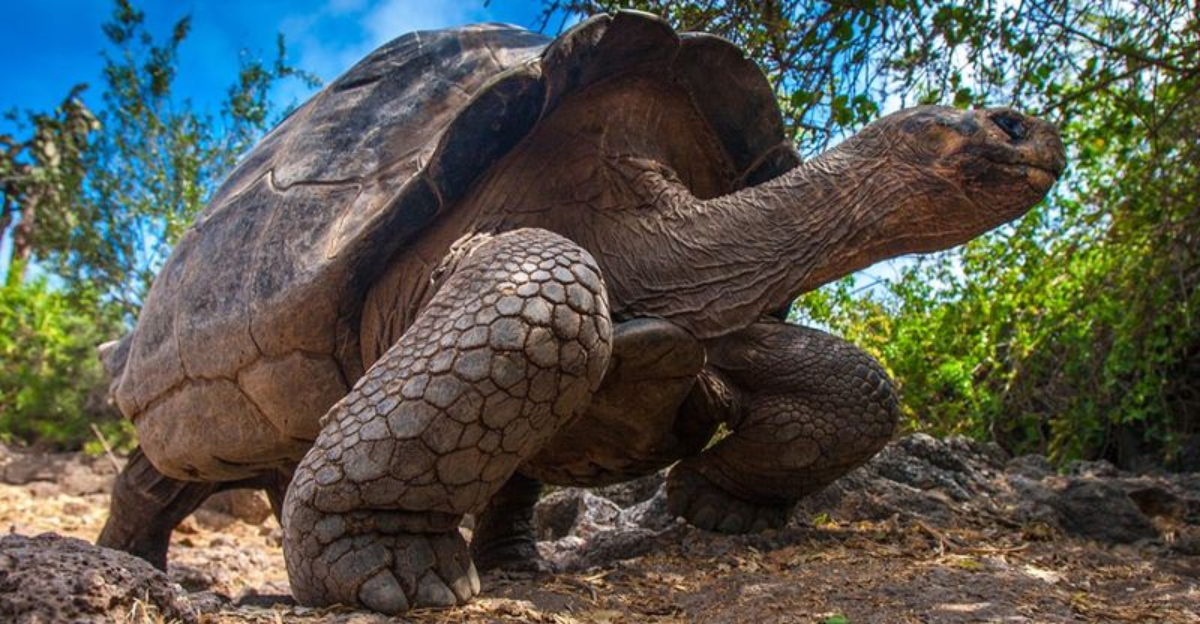
Have you ever wondered why tortoises live so incredibly long? Some giant tortoises can reach ages of 150 years or more, making them some of the longest-living land animals on Earth.
Their secret weapon isn’t fancy diets or special genes – it’s their famously slow lifestyle. This unhurried approach to life gives tortoises surprising advantages that help them outlive almost every other creature on the planet.
1. Slow Metabolism Means Less Cellular Damage
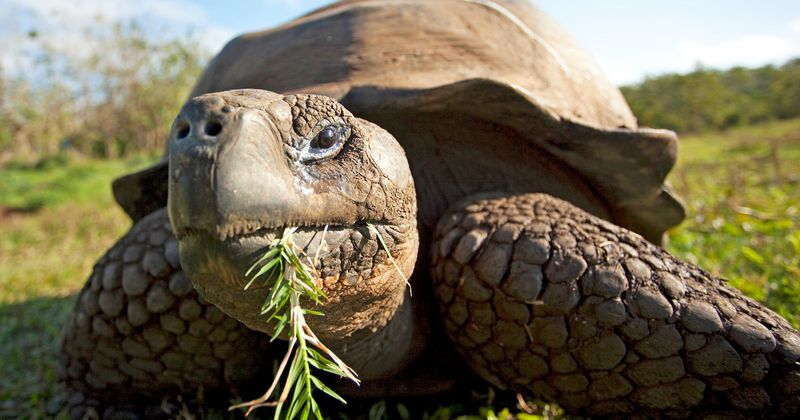
Tortoises operate like living energy-savers. Their cells burn fuel at an incredibly slow rate compared to mammals like us.
This glacial metabolism produces fewer harmful free radicals—those pesky molecules that damage cells and speed up aging. With less internal wear and tear happening daily, tortoise bodies simply last longer.
2. Their Organs Age Very Slowly
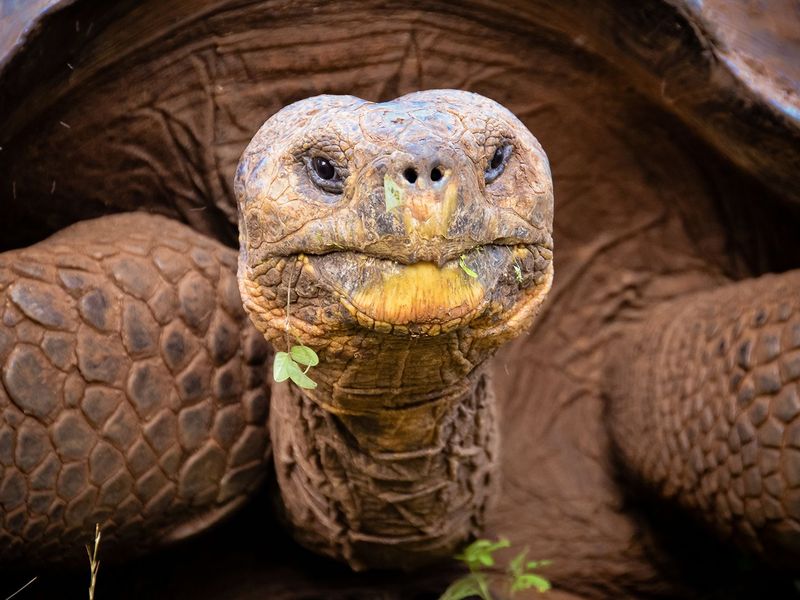
Unlike humans whose organs gradually weaken with time, tortoise organs remain remarkably unchanged throughout their century-spanning lives. Scientists examining 100-year-old tortoise hearts often find them functionally identical to those of 20-year-olds!
This biological time-freeze means vital systems keep working efficiently decade after decade.
3. Low-Calorie Lifestyles Support Longevity
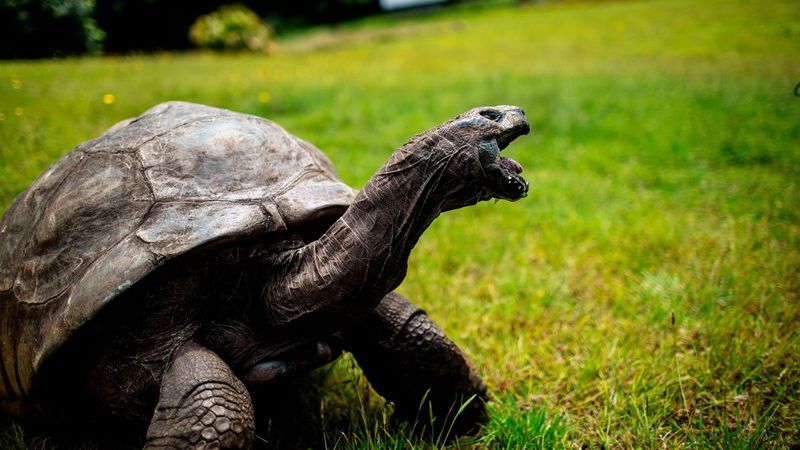
Humans dream of magical calorie-restriction diets for longer lives, but tortoises naturally live this way without trying. Moving slowly requires minimal energy, so tortoises eat surprisingly little for their size.
This natural calorie restriction activates longevity pathways in their bodies. Their cells enter preservation mode rather than growth mode, extending lifespan dramatically.
4. Cold-Blooded Efficiency
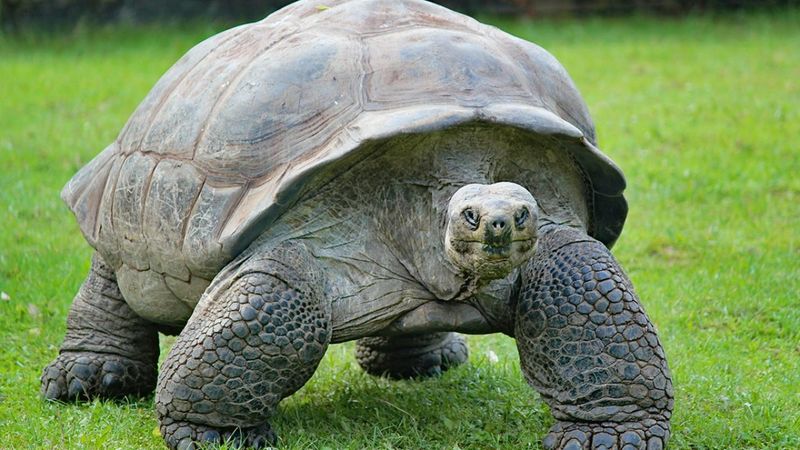
Being ectothermic gives tortoises a massive survival advantage. Unlike mammals who burn through energy keeping their temperature constant, tortoises borrow heat from their environment.
This energy-saving approach means less metabolic stress on their bodies. When temperatures drop, they simply slow down further, entering a state where aging practically pauses until conditions improve.
5. Armor Against Predators And Time
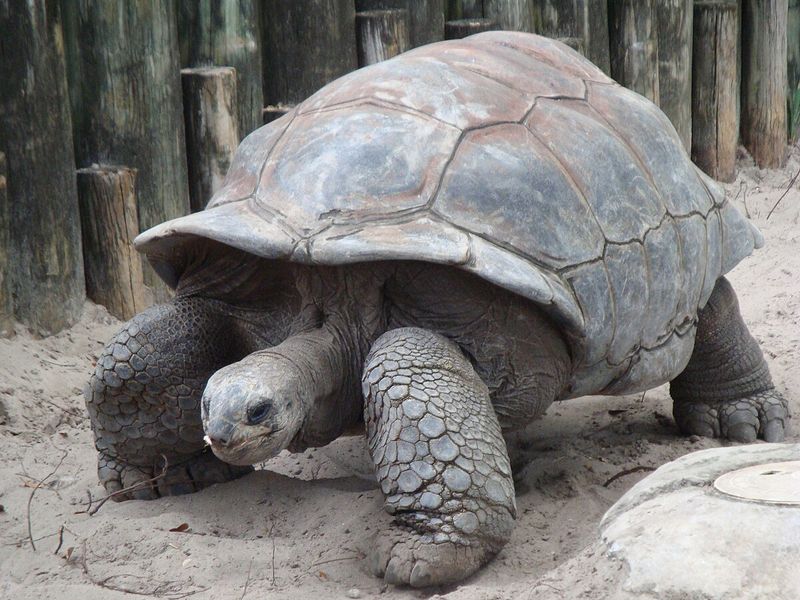
A tortoise shell isn’t just impressive body armor—it’s a literal lifesaver. Physical protection means fewer injuries throughout their long lives, while internal organs remain safely cushioned from trauma.
Fewer injuries means less healing required, which preserves the limited number of cell divisions their bodies can perform. This conservation of cellular resources significantly extends their lifespan.
6. Slower Lives Mean Fewer Risks
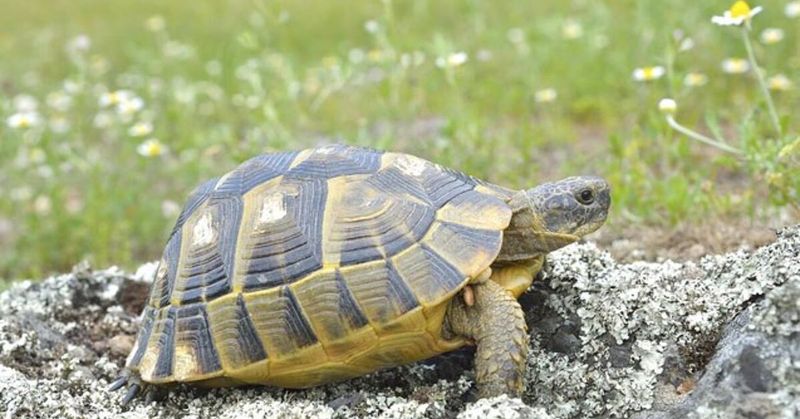
Racing through life is dangerous business. Fast animals frequently suffer injuries from falls, collisions, and overexertion that shorten their lives dramatically.
Tortoises avoid these hazards entirely with their methodical movements. Their cautious, deliberate pace means they rarely fall or injure themselves. This risk-averse lifestyle helps them accumulate decades that speedier creatures never see.
7. Exceptional DNA Repair Abilities
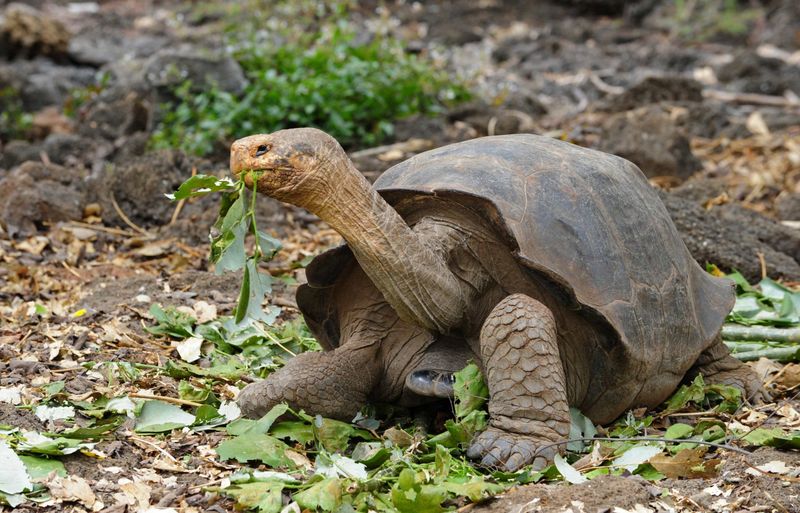
Genetic damage accumulates in most animals as they age, but tortoises possess remarkable DNA repair mechanisms. Their cells methodically fix mutations that would cause cancer or aging in other species.
Research suggests this repair efficiency stays strong even in century-old tortoises. Maintaining genetic integrity over decades allows their bodies to function properly far longer than most vertebrates.
8. Strong Immune Systems Over Time
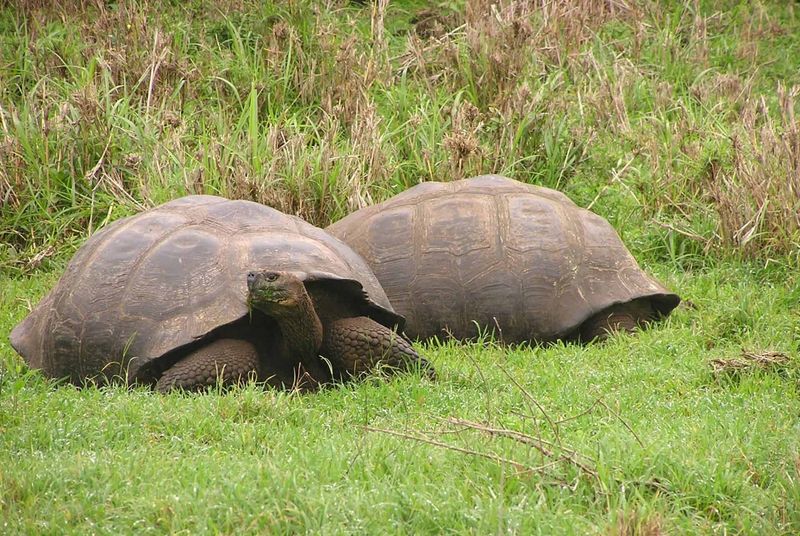
Most animals experience immune system decline with age, becoming vulnerable to diseases they once easily fought off. Tortoises break this rule completely.
Their immune responses remain robust for decades, with minimal weakening. Some scientists believe their slow metabolism actually preserves immune function, as their defensive cells age more slowly and maintain effectiveness throughout their extended lifespans.
9. Reproduction Is Delayed But Steady
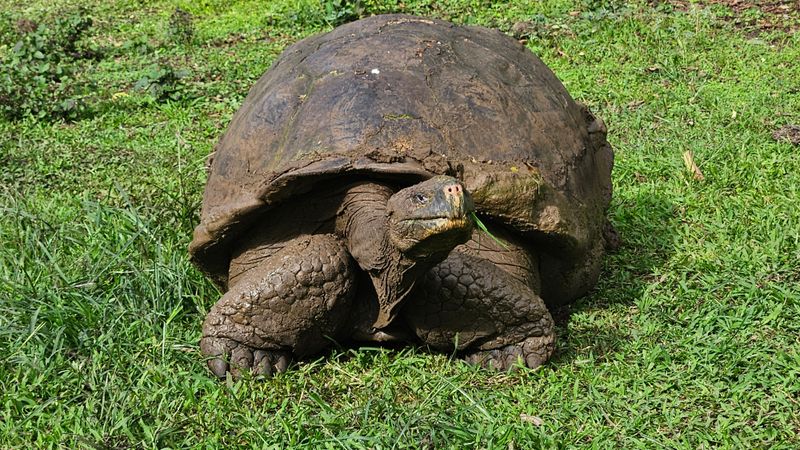
Rushing into parenthood isn’t the tortoise way. These methodical reptiles often wait 20-30 years before producing their first offspring—an approach that supports longevity.
Early reproduction taxes the body’s resources and accelerates aging. By delaying reproduction and spreading it across many decades, tortoises avoid the biological costs that shorten lives in species that reproduce quickly and frequently.
10. Stress Is Rare In Their World
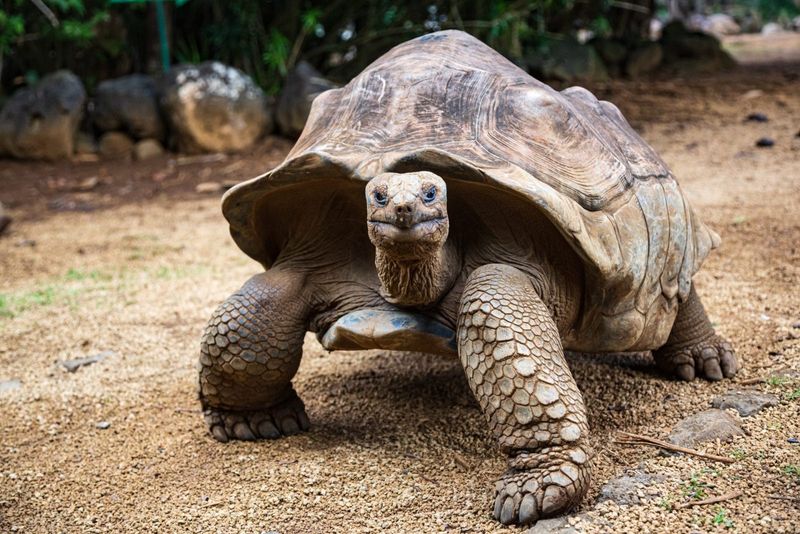
Chronic stress accelerates aging by damaging cells and weakening immune function. Tortoises, however, maintain extraordinarily low stress hormone levels throughout their lives.
Their unhurried lifestyle means they rarely experience the fight-or-flight responses that wear down mammal bodies. This stress-free existence allows their cellular repair mechanisms to work efficiently without constant disruption.
11. Natural Selection Favors Longevity
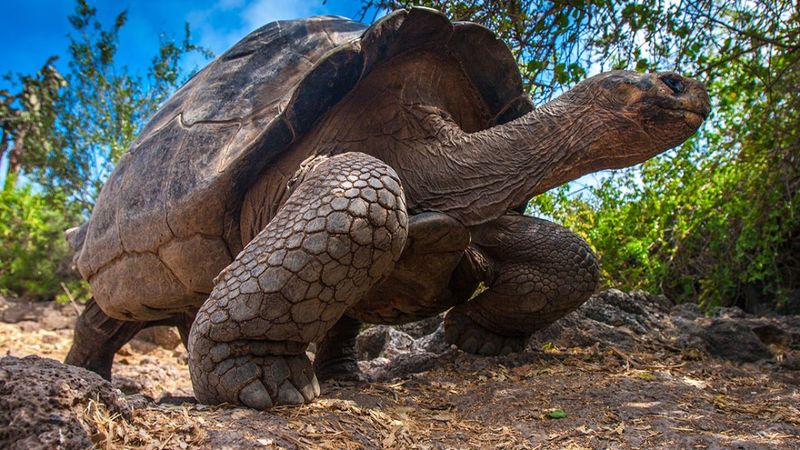
Evolution shaped tortoises differently than most animals. In their ecological niche, living longer proved more advantageous than rapid reproduction or quick growth.
With few natural predators once they reach adult size, tortoises benefit from extended lifespans that allow them to reproduce over many decades. This evolutionary pressure selected for individuals with cellular mechanisms that resist aging, gradually creating these living time capsules.
12. Their Slowness Is Built For Survival, Not Just Speed
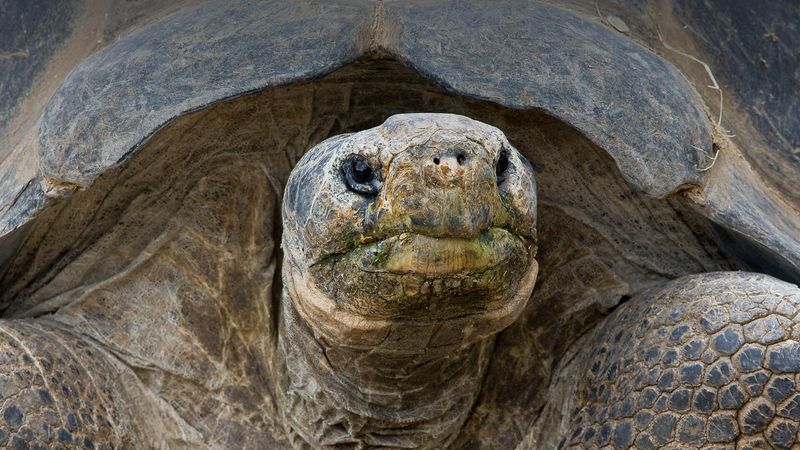
Moving slowly isn’t a disadvantage—it’s their winning strategy. Tortoises evolved to prioritize endurance over speed, conserving precious energy for survival rather than quick bursts of activity.
This energy conservation extends to cellular processes too. Their bodies perform maintenance and repair with the same unhurried precision as their physical movements, ensuring internal systems remain functional for extraordinary periods.

